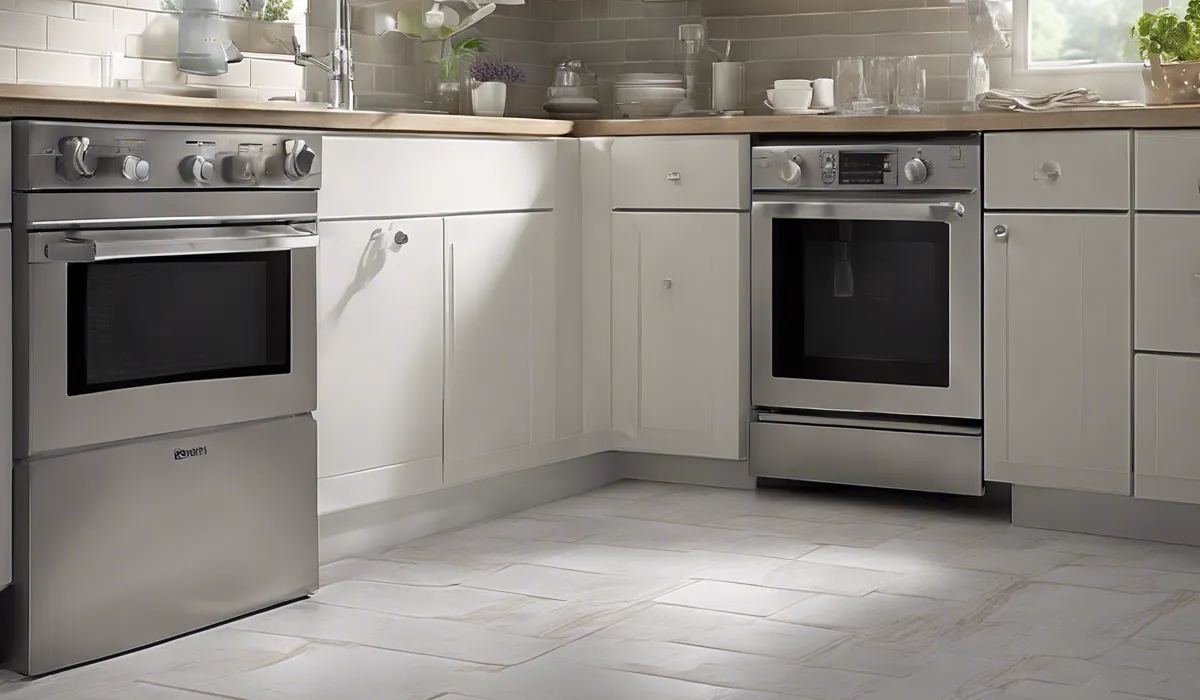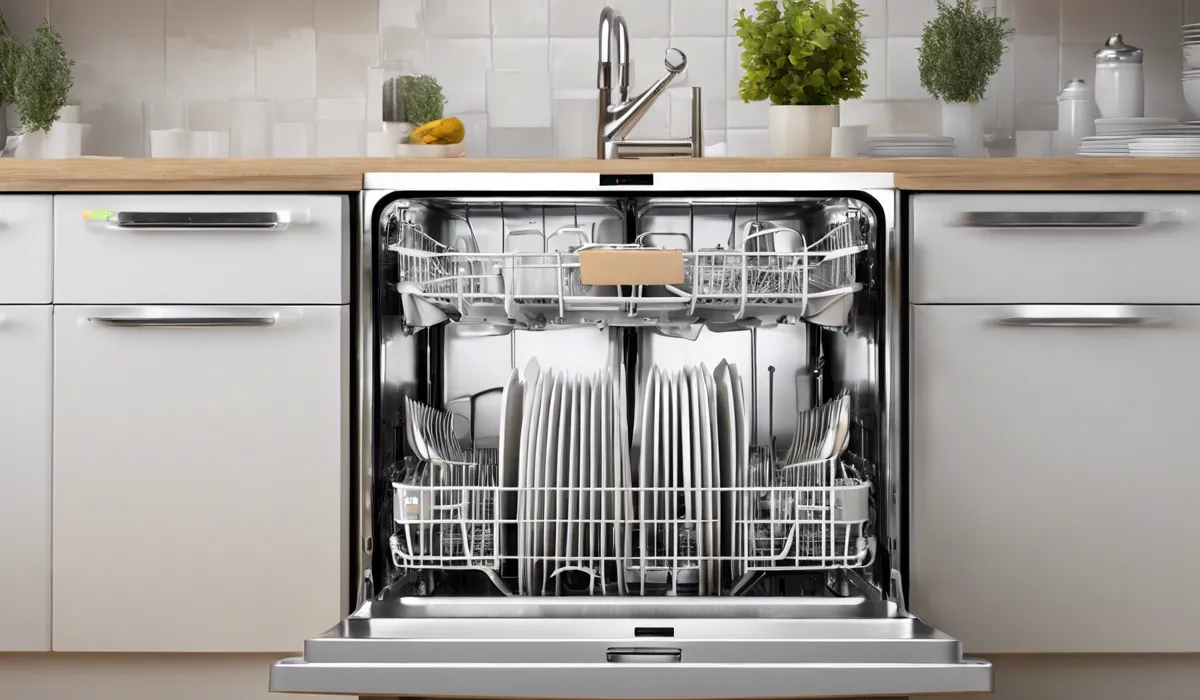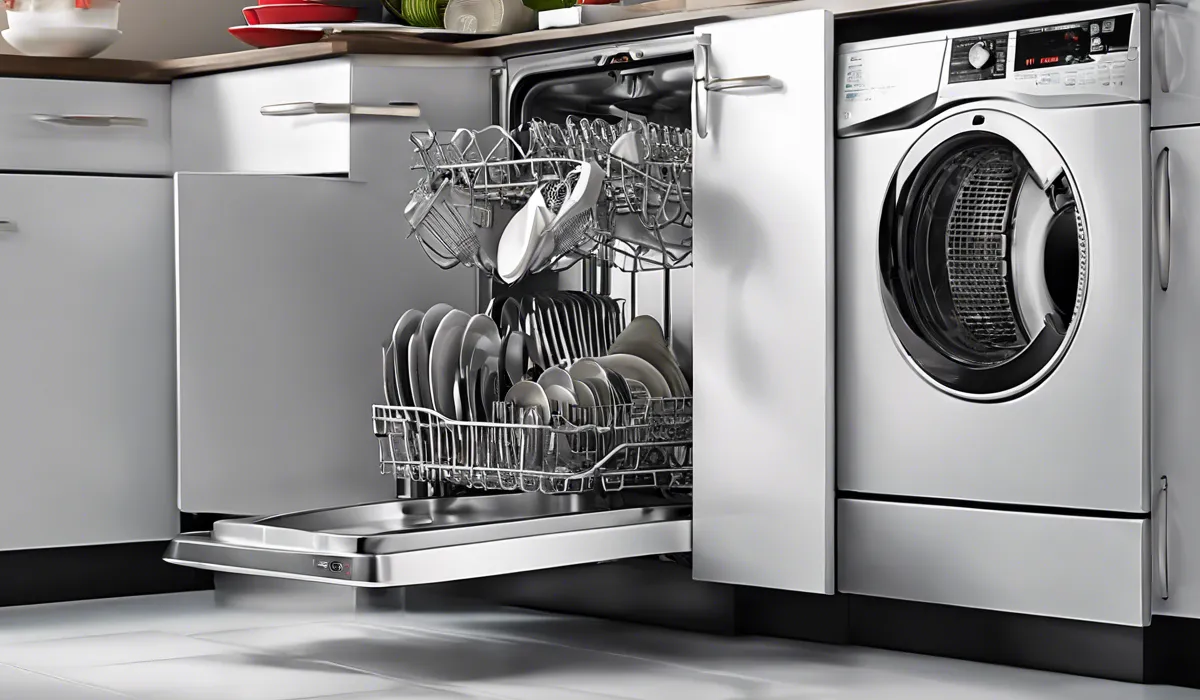Can Overloading a Dishwasher Cause it to Leak? Find Out Why!
Yes, overloading a dishwasher can cause it to leak. Items can block the spray arm or door seal, leading to water escaping. It’s important to load according to manufacturer guidelines to prevent leaks and ensure efficient cleaning.
Causes of Dishwasher Leaks Related to Overloading

Misalignment of Dishes Causing Door Seal Obstruction
One of the primary reasons a dishwasher may leak when overloaded is due to the misalignment of dishes. When too many items are crammed inside, they can press against the door, preventing it from sealing properly.
The door seal, a critical component designed to keep water contained, can be obstructed by plates, utensils, or pots that are not loaded correctly.
This obstruction can cause water to seep through the edges of the door during a wash cycle, resulting in leaks onto your kitchen floor.
Increased Pressure on Spray Arms Leading to Misdirection and Leaks
The spray arms in your dishwasher need to rotate freely to effectively clean your dishes.
Overloading the dishwasher can hinder the movement of these arms, causing them to spray water erratically or with increased pressure in unintended directions.
This misdirection can lead to water being forced out through the door seal or other weak points in the dishwasher’s structure, causing leaks that can damage your kitchen and appliance over time.
Blockage of the Filter or Drain from Food Debris
Food particles and debris can easily accumulate when dishes are not rinsed properly or when too many dishes are loaded into the machine.
The dishwasher filter and drain are essential for preventing food from recirculating onto clean dishes and for ensuring water is expelled correctly.
However, overloading can cause excessive food debris to block these components, leading to water backup and leaks. The obstruction can also strain the dishwasher’s pump, potentially leading to more serious mechanical issues.
Impact on the Dishwasher’s Ability to Properly Use Detergent
When a dishwasher is overloaded, the effectiveness of the detergent is compromised. Dishes placed too close together or in an unorganized manner can prevent detergent from being distributed evenly.
This can result in a poor wash and may cause the machine to work harder, increasing the risk of leaks.
In some cases, detergent residue can build up and contribute to the clogging of internal components, further exacerbating leakage problems.
Preventive Measures to Avoid Leaks When Loading a Dishwasher

Proper Arrangement of Dishes According to Manufacturer’s Guidelines
Following the manufacturer’s guidelines for loading your dishwasher is crucial for preventing leaks and ensuring your dishes come out clean.
These guidelines are designed to optimize the placement of dishes so that water and detergent can reach every surface without obstruction.
Proper arrangement prevents the issues that arise from overloading, such as blocked spray arms and compromised door seals. Always refer to your dishwasher’s manual to understand the best way to load your specific model.
Importance of Leaving Space Between Items for Water Circulation
Ensuring there is adequate space between dishes is another key step in preventing dishwasher leaks. Good water circulation is necessary for both cleaning and the proper functioning of the dishwasher.
When items are spaced out, water can flow freely, and the spray arms can operate without impediment.
This reduces the chance of misdirected water and leaks. It’s as important as knowing the right toilet flange size for a secure and leak-free toilet installation.
Regular Maintenance Tips: Cleaning Filters, Checking for Worn Seals and Gaskets
Regular maintenance is essential to keep your dishwasher running smoothly and leak-free. Cleaning the filter and checking the condition of seals and gaskets should be a routine task.
Over time, these components can wear out or become clogged with food particles, leading to leaks.
Cleaning the filter is a simple step that can prevent blockages and ensure efficient drainage. If you notice wear or damage on seals and gaskets, they should be replaced promptly to maintain a watertight seal.
Troubleshooting Common Leak Issues in Overloaded Dishwashers

Steps to Identify the Source of the Leak
Identifying the source of a leak in an overloaded dishwasher requires a methodical approach. Start by checking the most common problem areas such as the door seal, spray arms, and the base of the dishwasher for signs of water escape.
If you spot water pooling or dripping from a specific area, that can be a strong indicator of where the problem lies. It’s also worthwhile to run a cycle with a lighter load to see if the leaking persists when the dishwasher is not overloaded.
When to Clean Versus When to Call a Professional
Cleaning is often the first step in resolving a leak. Remove any debris from the filter, unclog the spray arms, and ensure that the door seal is free of obstructions.
If these actions do not resolve the issue or if you notice damaged components, it’s time to call a professional.
A trained technician can provide a thorough assessment and repair any complex issues that may not be evident to the untrained eye.
Think of it as similar to choosing the right ceiling box size—sometimes, professional insight is necessary for the perfect fit.
Long-term Consequences of Ignoring Leaks Caused by Overloading
Ignoring leaks in your dishwasher can lead to long-term consequences such as water damage to your kitchen cabinetry and flooring.
Consistent exposure to water can cause materials to warp, mold to form, and can even compromise the structural integrity of your home.
Additionally, the dishwasher itself can suffer from increased wear and tear, potentially leading to more costly repairs or the need for a complete replacement.
FAQs About Dishwasher Overloading and Leaks
Can overloading a dishwasher cause it to malfunction?
Yes, overloading a dishwasher can lead to malfunctions, including leaks, as it may prevent the spray arms from moving freely and the door from sealing properly.
What happens if you put too many items in a dishwasher?
Putting too many items in a dishwasher can block the spray arm or door seal, resulting in water leakage and poorly cleaned dishes.
How should items be loaded in the dishwasher to prevent leaking?
Items should be loaded according to the manufacturer’s guidelines, ensuring that the spray arms can rotate freely and the door can seal correctly to prevent leaks.
Can small items cause a dishwasher to leak if overloading?
Small items can contribute to overloading and may slip through the racks, potentially blocking the spray arm or door seal and causing the dishwasher to leak.
Is it possible for a dishwasher to leak if loaded correctly but over capacity?
Even if loaded correctly, a dishwasher can leak if it’s over capacity because it can prevent the door from sealing properly or obstruct the spray arms’ movement.
Final Thoughts
Overloading a dishwasher can indeed lead to leaks, as excessive items may obstruct the spray arm or compromise the door seal.
To avoid water spillage and ensure dishes are cleaned effectively, it is crucial to adhere to the loading instructions provided by the dishwasher’s manufacturer.





